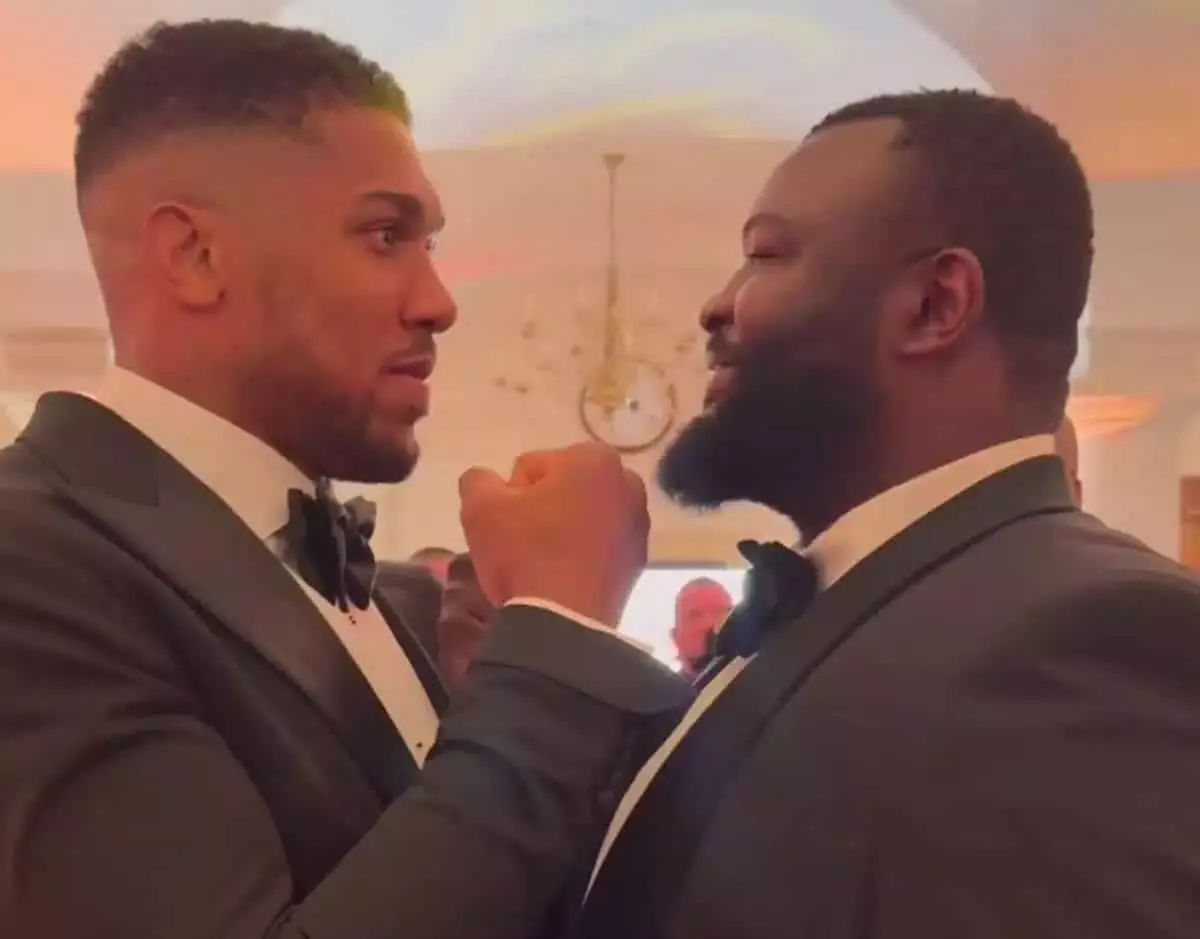In the world of heavyweight boxing, narratives often shift as quickly as the fighters within the ring. Recent commentary from promoter Eddie Hearn regarding heavyweight contender Martin Bakole sheds light on the strategies and motivations that fuel rivalries and potential matchups. While Hearn perceives Bakole’s call-outs of former champion Anthony Joshua as an act of “clout-chasing,” a deeper examination reveals layers of ambition, strategy, and market dynamics that cannot be overlooked.
The Nature of Clout in Boxing
In the fight game, the term “clout” is often thrown around when discussing fighters who seem to seek notoriety through association. Hearn’s accusations against Bakole raise questions about authenticity in the sport. Bakole has indeed leveraged Joshua’s name to elevate his profile, but this is a well-known strategy in boxing. It resonates with the historic connections many fighters have sought through rivalry or competition with established champions. However, dismissing Bakole’s interest in facing Joshua as mere opportunism overlooks the real desire for recognition, financial gain, and competitive validation that drives many fighters.
Bakole (21-1, 16 KOs) is not just another contender looking to cash in on the name of a former champion. His aspirations go beyond clout. His recent successes and ambitions highlight his intent to engage Joshua in a meaningful contest. The envisioned fight in Africa, reminiscent of the legendary Muhammad Ali vs. George Foreman bout, suggests Bakole’s understanding of not just the sport’s financial aspects but also its cultural and historical significance. Thus, while Hearn’s perspective may have some truth, it can be reductive.
Anthony Joshua (28-4, 25 KOs), once the face of heavyweight boxing, finds himself at a critical juncture following a series of setbacks against high-caliber opponents. Hearn’s comments indicate a level of hesitation regarding Joshua’s return to the ring against a formidable opponent like Bakole. As more fighters emerge as serious contenders, the dynamics of Joshua’s decision-making become crucial. With his past performances raising concerns about his resilience and strategy, the implications of stepping back into the ring against a fighter on the rise cannot be underestimated.
It is plausible that Joshua is now prioritized financially lucrative fights over those that pose significant risk. Hearn’s notes about Joshua’s “four-fight rebuild” indicate an approach that minimizes volatility while maximizing profit. The fights with lesser-known opponents serve to re-establish Joshua’s confidence and also cater to an audience eager for nostalgia, further complicating the notion of ambition within the sport. When a fighter is seen merely as a brand rather than a competitor, the landscape shifts, and the risks associated with challenging rising stars often seem less appealing.
From Bakole’s perspective, pursuing a fight against Joshua is not merely about chasing clout; it embodies a strategic career move. For a fighter on the verge of elite status, a successful bout with Joshua could secure his place in boxing history, open opportunities for more significant matches, and enhance his marketability. Rakole’s confidence—emanating from his recent victory over notable opponents—gives him a strong footing to challenge Joshua head-on.
Conversely, the potential fight encapsulates much more than personal ambition. It also plays into the larger narrative of heavyweight boxing, where legacy, competition, and financial implications intersect in complex ways. Should Hearn eventually facilitate a match between Bakole and Joshua, the ramifications will ripple through the sport, inviting scrutiny over management strategies and the balance of risk versus reward in fighter choices.
The rhetoric surrounding Bakole’s call-outs of Joshua showcases the intricate interplay within heavyweight boxing. While Hearn dismisses Bakole’s intentions as clout-chasing, the truth resonates with multifaceted ambitions driven by the realities of the sport. Both fighters inhabit a space marked by financial incentives, competitive drives, and a search for recognition.
The prospect of a Joshua vs. Bakole match might still flutter at the edges of possibility, but it serves as a reminder that in boxing, narratives are not merely about individuals; they encapsulate the aspirations of multiple fighters, promoters, and fans. As boxing’s future remains in flux, the intricate dramas that unfold within the ring promise to keep the conversation rich, nuanced, and far from simplistic.

